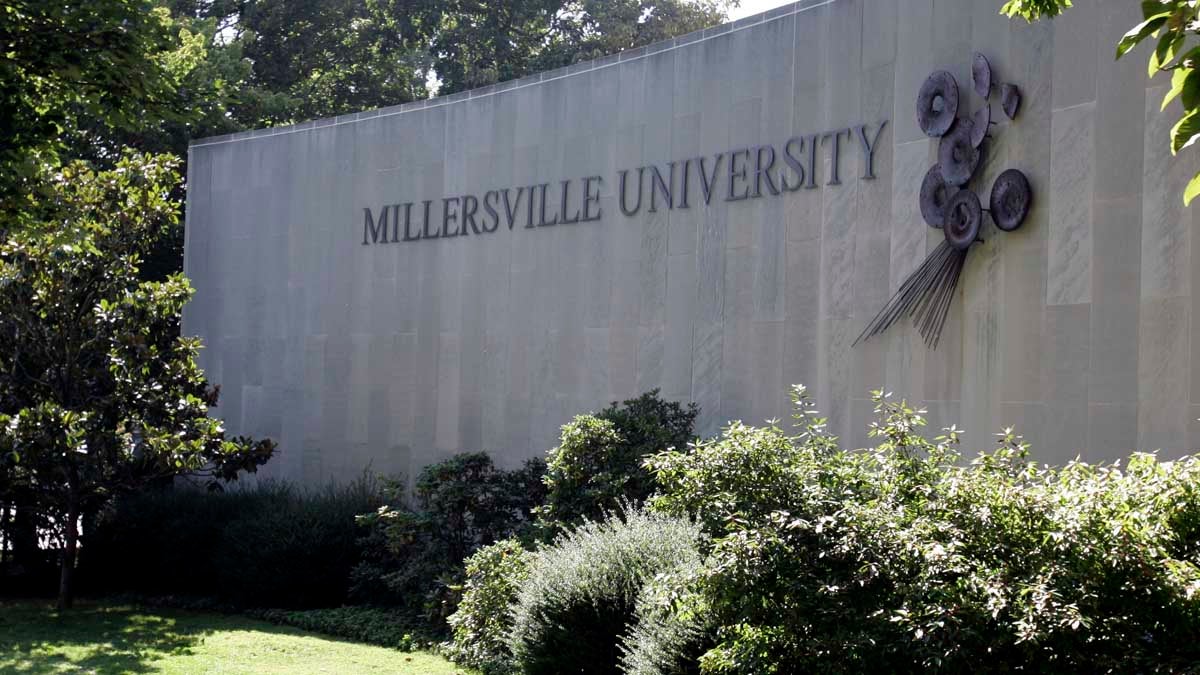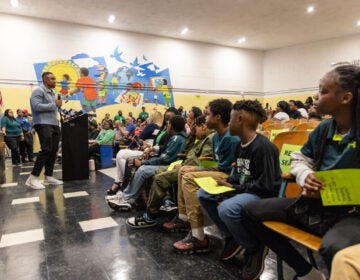Wolf budget proposal calls for Pa. higher ed increases with tuition freeze

The 14 universities in the State System of Higher Education, including Millersville, could get an 11 percent funding hike if lawmakers approve Pennsylvania Gov. Tom Wolf's spending plan. (AP file photo)
State universities and community colleges rejoiced when Pennsylvania Gov. Tom Wolf called for a 12 percent boost in higher education funding Tuesday in his budget address.
But there are strings attached: Colleges must freeze tuition for one year.
The 14 universities in the State System of Higher Education could see another $45 million, an 11 percent hike, in a budget that has not had an increase in state funding in seven years.
“We’re very pleased with the Governor’s recommendation,” says Kenn Marshall, spokesman for the state system. “It follows on the heels of four straight years of level funding and, prior to that, an 18 percent cut.”
Schools in the system will work to achieve the tuition freeze, but still have negotiations with most of their unions, he said.
“The outcome of those negotiations will have to be taken into consideration, but certainly we will do everything that we possibly can to hold the line on tuition next year.”
In five years, tuition has gone up 18 percent at the universities — West Chester, Cheyney, Indiana, Bloomsburg, East Stroudsburg, Kutztown, Slippery Rock, Millersville, Clarion, Edinboro, California, Lock Haven, Mansfield, and Shippensburg.
The system’s board of governors already voted in the fall to freeze tuition if they received a boost of $50 million, but Wolf’s proposal is a bit shy of that figure.
Pennsylvania’s 14 community colleges also stand to benefit from the $143 million increase in higher education funding Wolf is seeking.
Those schools have seen dramatic funding cuts over several years, and Wolf’s proposed increase of $15 million would help reduce that.
Stephanie Shanblatt, president of Bucks County Community College, said she’s heartened by the prospective increase, but unsure if the school can implement the tuition freeze.
“I certainly think Bucks, as well as other colleges, will try to do that,” she said. “It leaves us very few options and, given the way our budgets are, I don’t know that it’s possible.”
The Bucks college will prepare a budget that does not count on extra state dollars.
“We will also develop a budget without it because, you know, it’s a long way from the governor’s budget speech in March until the General Assembly approves it in June,” Shanblatt said.
Bucks administrators have cut the college budget every year for three years, she said, including eliminating positions.
“It’s very challenging to cut much more without affecting instructional quality.”
While she appreciates Wolf’s recognition of community colleges, Shanblatt noted the budget got a smaller increase — 7 percent — than the rest of higher education did.
Officials at the Community College of Philadelphia are also cautiously optimistic.
College president Donald Generals, who said the administration will work toward the tuition freeze, added that the school didn’t increase tuition last year and doesn’t call for a hike in this year’s preliminary budget.
“I think the idea of reduced or no tuition increases for students is something that most community colleges are attempting to do,” he said. “For Pennsylvania to take the lead on that is a great thing. This will enable the economy to move forward with a better educated workforce.”
The college is early in the budget process and still has to negotiate with the City of Philadelphia as well as the state.
The state-related universities — Penn State, Temple, Lincoln, and University of Pittsburgh — would get an $81 million increase. Wolf asked them to keep potential tuition increases low.
The governor’s budget, which includes a $1 billion boost for pre-kindergarten to post-secondary education, goes to the General Assembly for consideration and will be finalized by the end of June.
WHYY is your source for fact-based, in-depth journalism and information. As a nonprofit organization, we rely on financial support from readers like you. Please give today.




